Do You Need Liposuction to Achieve Your Facelift Results?

A facelift surgery often involves several steps in order to achieve your desired results. As part of this intricate and delicate procedure, your facial plastic surgeon will remove or redistribute the fat cells that have collected around the chin and jaw. What exactly is meant by removing and redistributing this fat? Some patients have a larger amount of fat cells in this area, which may require liposuction techniques to correct. How will the excess fat be managed during your facelift surgery?
The Basic Facelift Technique
Where the fat cells are concerned, there is a standard method for redistributing these cells in order to improve facial contour. Your facelift surgery will begin with incisions placed along the hairline, around and behind the ears, and then extending down along the scalp. With these in place, your facial plastic surgeon is then able to access the supportive tissues of the face, called the SMAS layer. Some of the fatty tissue found in the SMAS is lifted along with it, alleviate the accumulation around the chin and jaw line. In addition, your facelift surgery will address loose muscles, trim away the excess skin, and alleviate many of the signs of aging from the lower region of the face.
Facelift Plus Liposuction
Sometimes, moving the SMAS upwards isn’t enough to rid the chin and jaw of excess fatty cells. When this happens, other measures may be required to remove this fat and achieve the desired youthful contour in this area. Liposuction techniques can be used to smooth the jaw, neck, and jowls as needed. Primarily used for body contouring purposes, certain liposuction methods can be safely and effectively used to treat this smaller, more delicate area as well. From suction-assisted methods to the modern VASER ultrasound-assisted techniques, the type of liposuction used will be determined based on your unique needs as a patient.
When adding liposuction treatments to their facelift, many patients worry about longer recovery times. While the nature of your recovery may change slightly based on the added procedure, you won’t be laid up for any extra time. In fact, your face will be able to heal from the complete procedure as a whole within the normal timeframe. Most patients can expect to return to work within one to two weeks, see swelling subside within two months, and resume their normal activities gradually throughout this time.
Overweight Patients and Facelift Surgery
Obviously, the human body tends to store more fat cells in places like the chin and neck if you are overweight. For overweight patients seeking facelift surgery, liposuction is commonly involved, provided you are eligible for surgery. If you are overweight or obese, your facelift may be very different from the typical procedure. Some surgeons may tell such patients to go home, lose the weight, and return when they are closer to their healthy weight range. Other surgeons will perform a facelift surgery but make some changes to accommodate for the fuller face and other distinct needs. Liposuction may feature prominently in such procedure, but it’s best to consult with a board certified facial plastic surgeon to determine your best treatment plan.
Regardless of your weight, all facelift patients must be in good overall health, not smoke, and have realistic expectations for their surgery. If you do not meet these criteria, it may not be safe or healthy for you to pursue a surgical procedure at this time. You should consult with a plastic surgeon to better understand what may be required before you qualify for surgery. If it’s not possible, alternative nonsurgical options could help you to achieve some of the results you want.
Book a Consultation to Plan Your Facelift
Consult with a facial plastic surgeon experienced in facelift procedures to get your very best results. Rami K. Batniji, M.D., F.A.C.S. is a facial plastic surgeon operating out of Newport Beach, California. He concentrates on specialty procedures to the face and neck and can performs a number of surgical and non-surgical treatments aimed at improving facial aesthetics. Contact Dr. Batniji at (310) 467-2180 to schedule an appointment.

